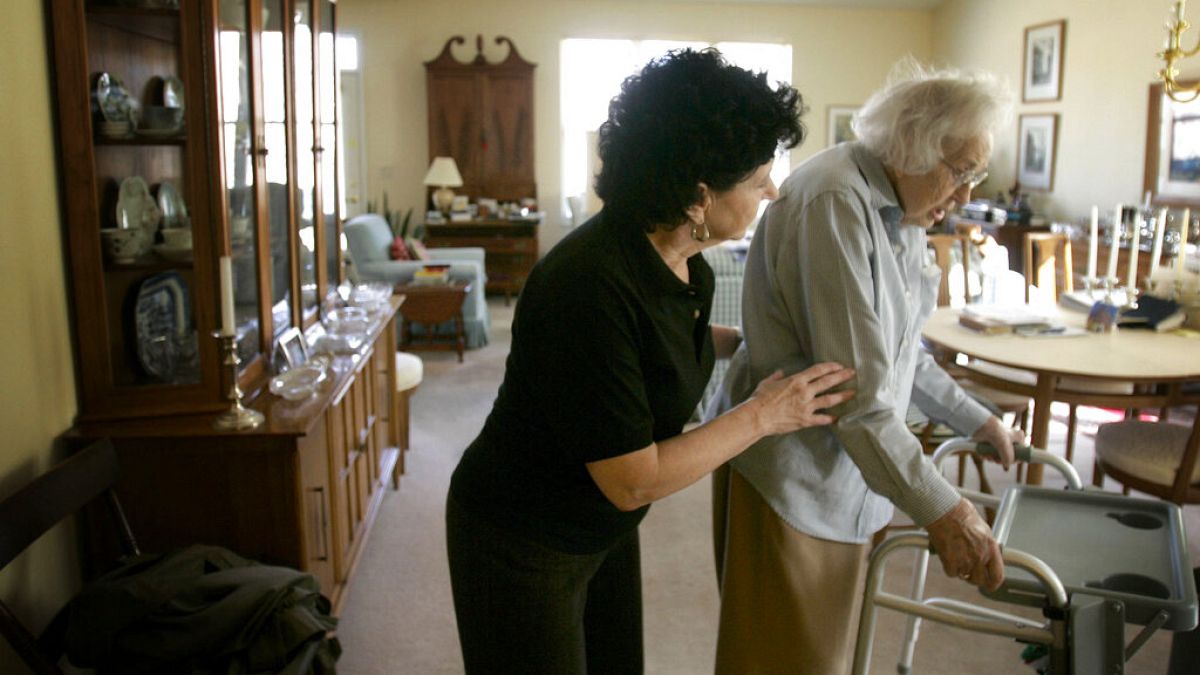Report shows more than 60% of home care workers don’t believe their jobs are sustainable until retirement, flags low pay, long working hours and mental health challenges as main barriers.
More than two-thirds (70%) of personal and household service workers (PHS) aged between 18 and 34, and 60% of those aged between 45 and 54 do not believe their jobs are sustainable until retirement, according to data released this week.
The report, published by four European associations working on the sector, tracked 4000 workers from twenty-six countries across Europe, of whom 96% were women and 30% were migrants, corresponding to the estimated demographic of the sector at large.
The PHS sector includes any activity that contributes to the well-being at home of families and individuals such as childcare, long-term care for the elderly and persons with disabilities but also cleaning, classes and home repairs.
The report states that despite the importance of the sector, it is difficult to obtain a clear picture of the realities of day-to-day work in the sector.
“This is a consequence of a variety of factors, from the fragmented and diverse nature of PHS work to the low level of formal and professional recognition of the sectors,” the report found.
The EU estimates that around 9.5 million people are working in the PHS sector in the EU, representing almost 5% of its total employment.
Due to an ageing population, this number is set to increase in the coming years. The Care Strategy published by the European Commission in 2022 stated that more than 1.6 million long-term care workers would have to be added by 2050 to maintain coverage at the same level.
“To respond to the increasing demand for care, the sector needs not only to retain staff but also to attract more workers with the right skills,” according to the Commission stategy.
PHS workers surveyed by the report cited mental health exhaustion as one of the main difficulties they face, of a list including low pay, long working hours and difficulty juggling work and personal life.
According to the publication, workers are more likely to consider their jobs mentally taxing when they work longer hours each week.
Among those who work 40 hours or less per week, 55% said their job has caused mental health problems such as stress, anxiety or burnout. When the number of worked hours goes up to more than 40, this number rises to 67%.
Overwork is not only linked to the amount of time a person spends at their job but also to the expected level of productivity during this time.
The EU Framework Directive for Safety and Health from 1989, specifically excludes “domestic servants”, which would include personal and household service workers.
This creates an uneven landscape of health and safety standards for workers in this sector in the EU.
Only around 60% of workers surveyed in the report say they have received health and safety training related to their jobs.
Training is more common among workers who work for a company or other organisation compared to those who are self-employed or directly employed by one or more households.
The report also considers undeclared work, known to be a common feature within the sector, noting that while exact numbers are difficult to determine, the European Labour Authority has estimated that 30-50% of personal and household service work is undeclared.
Although some EU inititiatives – such as the Commission’s action plan to tackle labour and skills shortages, and a current project by the European Agency for Safety and Health at Work on the health and social care sector – do address the PHS sector, the report said it should be given institutional recognition.

